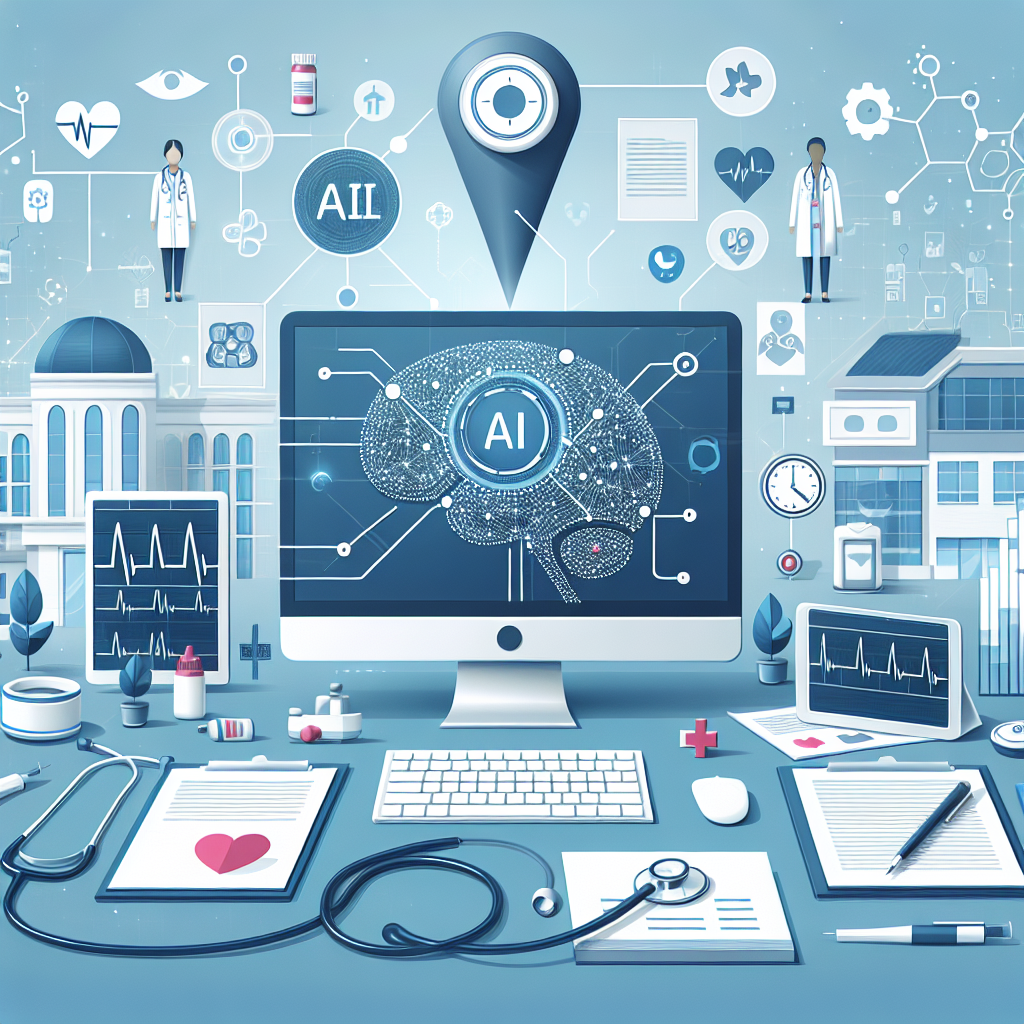Artificial intelligence (AI) has been making significant strides in the healthcare industry, particularly in the realm of process improvement. From streamlining administrative tasks to improving patient care, AI has the potential to revolutionize the way healthcare is delivered. In this article, we will explore the various ways in which AI is being used to enhance healthcare process improvement and address some frequently asked questions about AI in healthcare.
One area where AI is having a major impact on healthcare process improvement is in administrative tasks. Healthcare organizations are inundated with paperwork, billing, scheduling, and other administrative tasks that can be time-consuming and prone to errors. AI can automate many of these processes, freeing up healthcare professionals to focus on patient care. For example, AI-powered chatbots can handle patient inquiries and appointment scheduling, reducing the burden on administrative staff.
AI is also being used to improve the quality of care that patients receive. Machine learning algorithms can analyze vast amounts of data to identify patterns and trends that can help healthcare providers make more informed decisions. For example, AI can be used to predict which patients are at risk for certain conditions, allowing healthcare providers to intervene earlier and prevent serious complications. AI can also help to personalize treatment plans based on individual patient data, leading to better outcomes.
Another area where AI is making a big impact on healthcare process improvement is in medical imaging. AI algorithms can analyze images such as X-rays, MRIs, and CT scans to detect abnormalities or signs of disease. This can help radiologists and other healthcare providers make more accurate diagnoses and develop more effective treatment plans. AI can also be used to prioritize imaging studies based on the urgency of the patient’s condition, ensuring that those in need of immediate attention receive it promptly.
AI is also being used to improve the efficiency of clinical trials and drug development. By analyzing data from previous trials, AI can help researchers identify potential new drug candidates more quickly and accurately. AI can also be used to match patients with clinical trials based on their medical history and genetic profile, increasing the likelihood of successful outcomes. This can help to speed up the drug development process and bring new treatments to market faster.
In addition to these applications, AI is also being used to improve patient engagement and adherence to treatment plans. AI-powered apps can provide patients with personalized health recommendations, reminders to take medications, and support for making healthy lifestyle choices. This can help patients stay on track with their treatment plans and improve their overall health outcomes.
Despite the many benefits of AI in healthcare process improvement, there are also some challenges and concerns that need to be addressed. One major concern is the potential for bias in AI algorithms. If the data used to train AI systems is biased or incomplete, it can lead to inaccurate or unfair results. Healthcare organizations need to be vigilant about ensuring that their AI systems are trained on diverse and representative data sets to avoid bias.
Another challenge is the need for healthcare professionals to be trained in how to use AI effectively. Many healthcare providers may not have the necessary skills or knowledge to leverage AI tools in their daily practice. Healthcare organizations need to invest in training programs and resources to help their staff understand how AI can be used to improve processes and patient care.
In conclusion, AI has the potential to revolutionize healthcare process improvement in a variety of ways. From streamlining administrative tasks to improving patient care and speeding up drug development, AI is already making a big impact on the healthcare industry. As AI technology continues to advance, we can expect to see even more innovative applications that will help to improve the quality, efficiency, and accessibility of healthcare for patients around the world.
FAQs about AI in Healthcare
Q: What is artificial intelligence (AI) in healthcare?
A: AI in healthcare refers to the use of advanced technology, such as machine learning algorithms, to analyze data, make predictions, and automate tasks in the healthcare industry. AI has the potential to revolutionize healthcare by improving processes, enhancing patient care, and accelerating medical research.
Q: How is AI being used to improve healthcare process improvement?
A: AI is being used in a variety of ways to improve healthcare process improvement, including streamlining administrative tasks, improving the quality of care, enhancing medical imaging, speeding up clinical trials, and promoting patient engagement and adherence to treatment plans.
Q: What are some benefits of using AI in healthcare?
A: Some benefits of using AI in healthcare include increased efficiency, improved accuracy in diagnosis and treatment, personalized care plans, faster drug development, and better patient outcomes. AI can help healthcare organizations save time and resources while providing higher quality care to patients.
Q: What are some challenges of using AI in healthcare?
A: Some challenges of using AI in healthcare include the potential for bias in algorithms, the need for proper training of healthcare professionals, concerns about data privacy and security, and the high cost of implementing AI systems. Healthcare organizations need to address these challenges to ensure that AI is used effectively and ethically in healthcare settings.
Q: How can healthcare organizations implement AI in their processes?
A: Healthcare organizations can implement AI in their processes by investing in AI technology, training their staff on how to use AI tools effectively, ensuring that their data sets are diverse and representative, and collaborating with AI experts and technology partners. By taking these steps, healthcare organizations can harness the power of AI to improve their processes and provide better care to patients.

